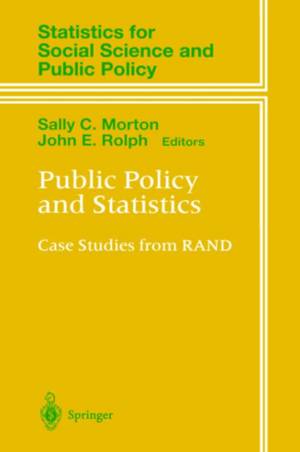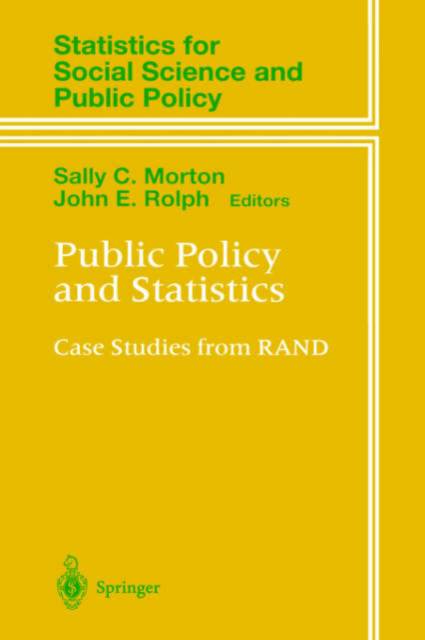
- Retrait gratuit dans votre magasin Club
- 7.000.000 titres dans notre catalogue
- Payer en toute sécurité
- Toujours un magasin près de chez vous
- Retrait gratuit dans votre magasin Club
- 7.000.0000 titres dans notre catalogue
- Payer en toute sécurité
- Toujours un magasin près de chez vous
Public Policy and Statistics
Case Studies from Rand
104,95 €
+ 209 points
Description
Public policy research frequently requires using statistics to address important and complex problems in a pragmatic way. In this volume, we describe the rich analytical techniques and substantive applications that typify how statistical thinking has been applied at the RAND Corporation over the past two decades. Our philosophy is to be critical yet constructive. We strive to bridge the gap between being a discerning consumer of analyses, and an applied statistician who uses the available information to advise the policy-maker in the face of substantial uncertainty. Case studies of public policy problems are useful for teaching because they are familiar. Almost everyone knows something abut health insurance, global warming, and capital punishment, to name but a few of the applications covered in this casebook. Each case study has a common format that describes the policy questions, the statistical questions, and the successful and the unsuccessful analytic strategies. Readers should be familiar with basic statistical concepts including sampling and regression. This casebook is designed for statistics courses in areas ranging from economics to health policy to the law at both the advanced undergraduate and graduate levels. Empirical researchers and policy-makers should also find this casebook informative. Sally C. Morton is head of the RAND Statistics Group, a senior statistician in the RAND Health Program, and on the faculty of the UCLA School of Public Health. Her research interests include meta- analysis, the sampling of vulnerable populations, and the use of statistics in health policy. She is an associate editor of the Journal of the American Statistical Association and Statistical Science, has served on the Journal of Computational and Graphical Statistics editorial board, and is a member of the National Academy of Sciences
Spécifications
Parties prenantes
- Editeur:
Contenu
- Nombre de pages :
- 244
- Langue:
- Anglais
- Collection :
Caractéristiques
- EAN:
- 9780387987774
- Date de parution :
- 19-05-00
- Format:
- Livre relié
- Format numérique:
- Genaaid
- Dimensions :
- 162 mm x 242 mm
- Poids :
- 467 g

Les avis
Nous publions uniquement les avis qui respectent les conditions requises. Consultez nos conditions pour les avis.





